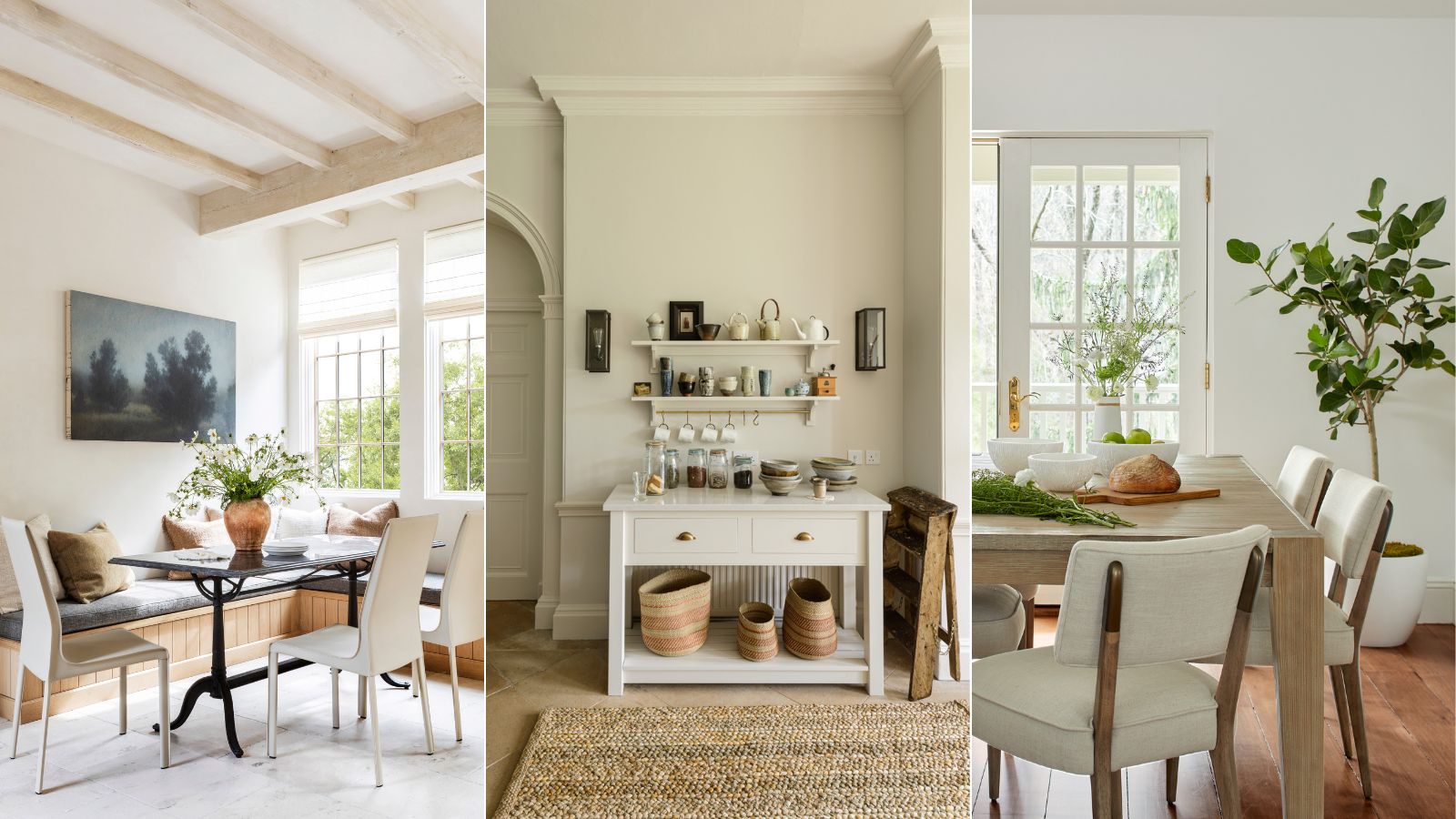
When decorating your scheme, you might be wondering 'What should I put in the corner of my kitchen?' It can be an awkward space to fill, especially if it's close to a walkway or an alcove surrounded by windows.
The good news is, that kitchen ideas are varied and in abundance, so interior designers have plenty of aesthetic and practical ways to make use of an awkward kitchen corner. Even the smallest of spaces can be transformed with thoughtful decoration.
To give you some inspiration, we've asked the experts to share their favorite ways to fill the corner of a kitchen, from simple additions to more thought-out designs – and they don't disappoint.
What should I put in the corner of my kitchen?
Don't let an empty kitchen corner become an eyesore, or worse, the home of the trash can. There are plenty of stylish ways to make an awkward corner feel cohesive with the rest of your kitchen scheme, rather than an afterthought.
1. Make a mini coffee station
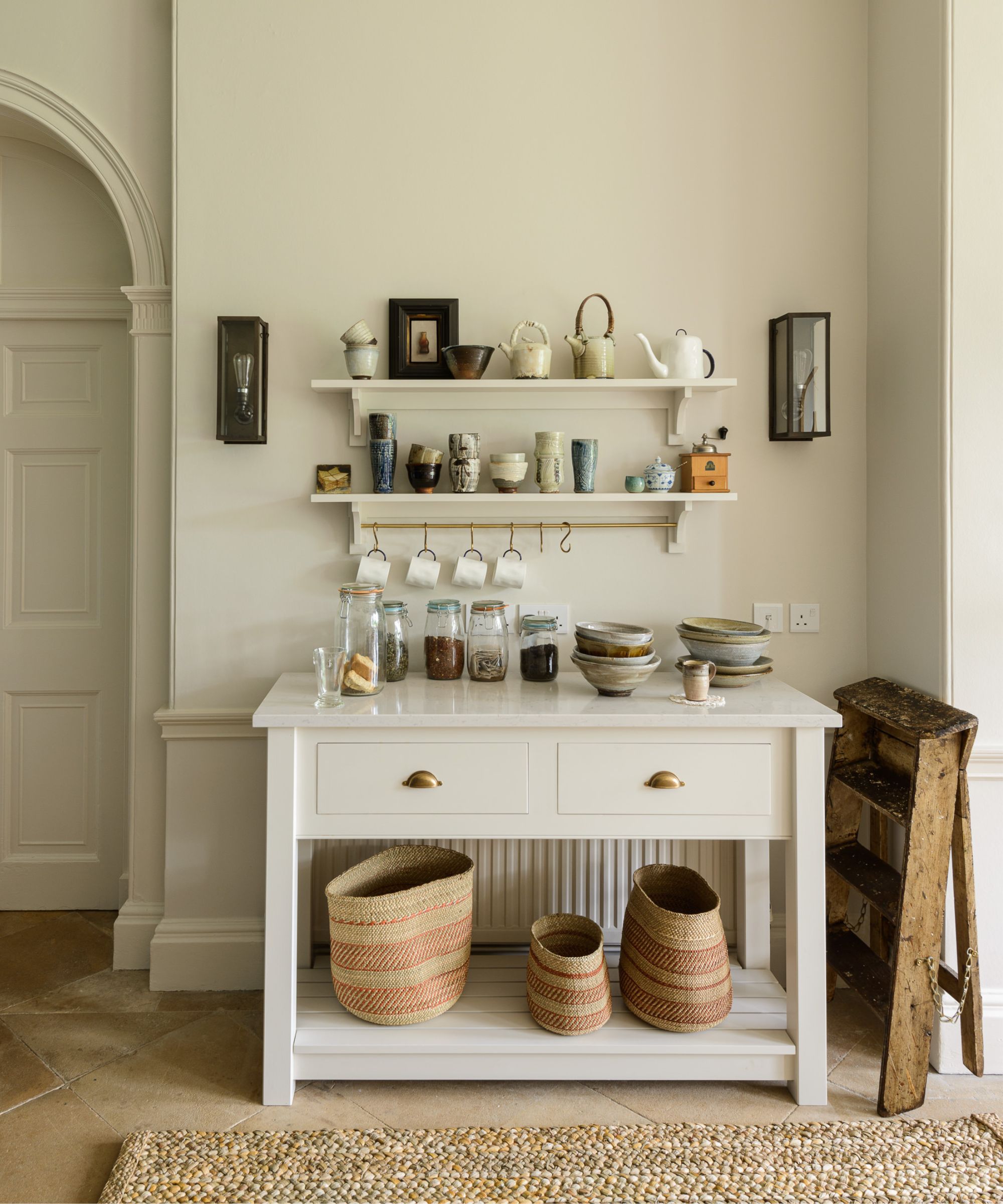
An empty kitchen corner is the perfect place to add a little luxury – creating a dedicated space for your morning rituals will make the start of your day all the more enjoyable.
For many, coffee is a morning must, so transforming the corner of your kitchen into a small coffee station or nook makes good use of the space. Add a simple storage unit or butcher's block and adorn it with your coffee machine, brewing essentials, and a few of your favorite mugs.
This coffee station has been elevated with two floating shelves above, displaying decor and vintage tableware. This is a great way to add character and personality to what was once an empty corner.
2. Create a mini living room
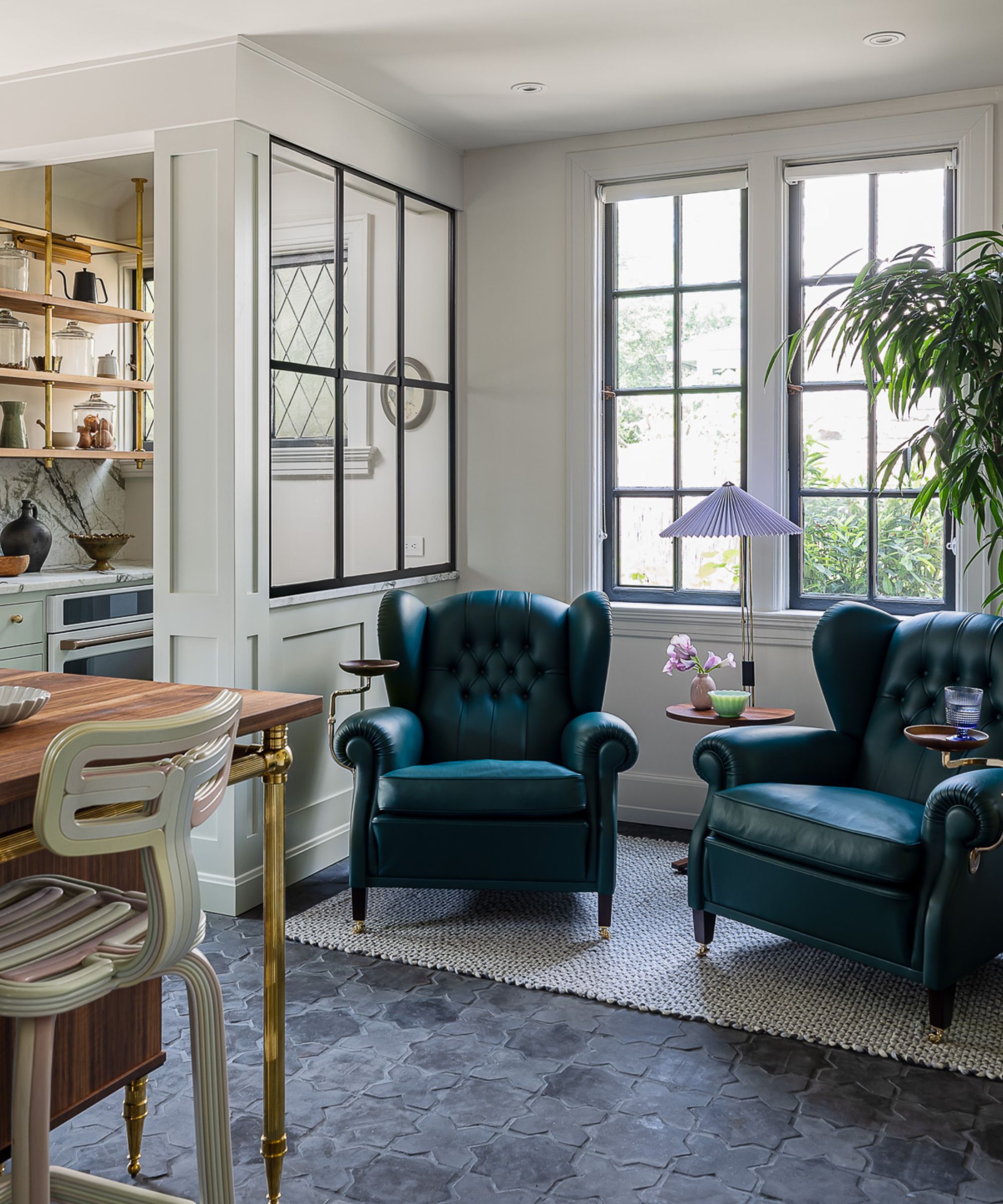
Kitchens are multifunctional spaces, and now more than ever we are spending more time socializing and relaxing in them. As such, an empty kitchen corner is an ideal spot to create a cozy seating area, kind of like a mini living room.
'I've noticed a tendency in my clients to want to cover every available wall in built-in cabinetry, but I always encourage leaving one wall or corner open for interpretation. In this lovely remodel of a historic 1920s Tudor revival, my clients opted to fill their empty kitchen corner with comfortable and classic "1910" club chairs from Poltrona Frau,' says interior designer Bethany Adams.
'The chairs fit the decor and colors of the rest of the home, so they could easily be repurposed if that corner needed to morph into something else down the line. For now, however, they are perfect for a morning cup of coffee or catching up over an evening glass of wine,' she adds.
3. Add an large house plant
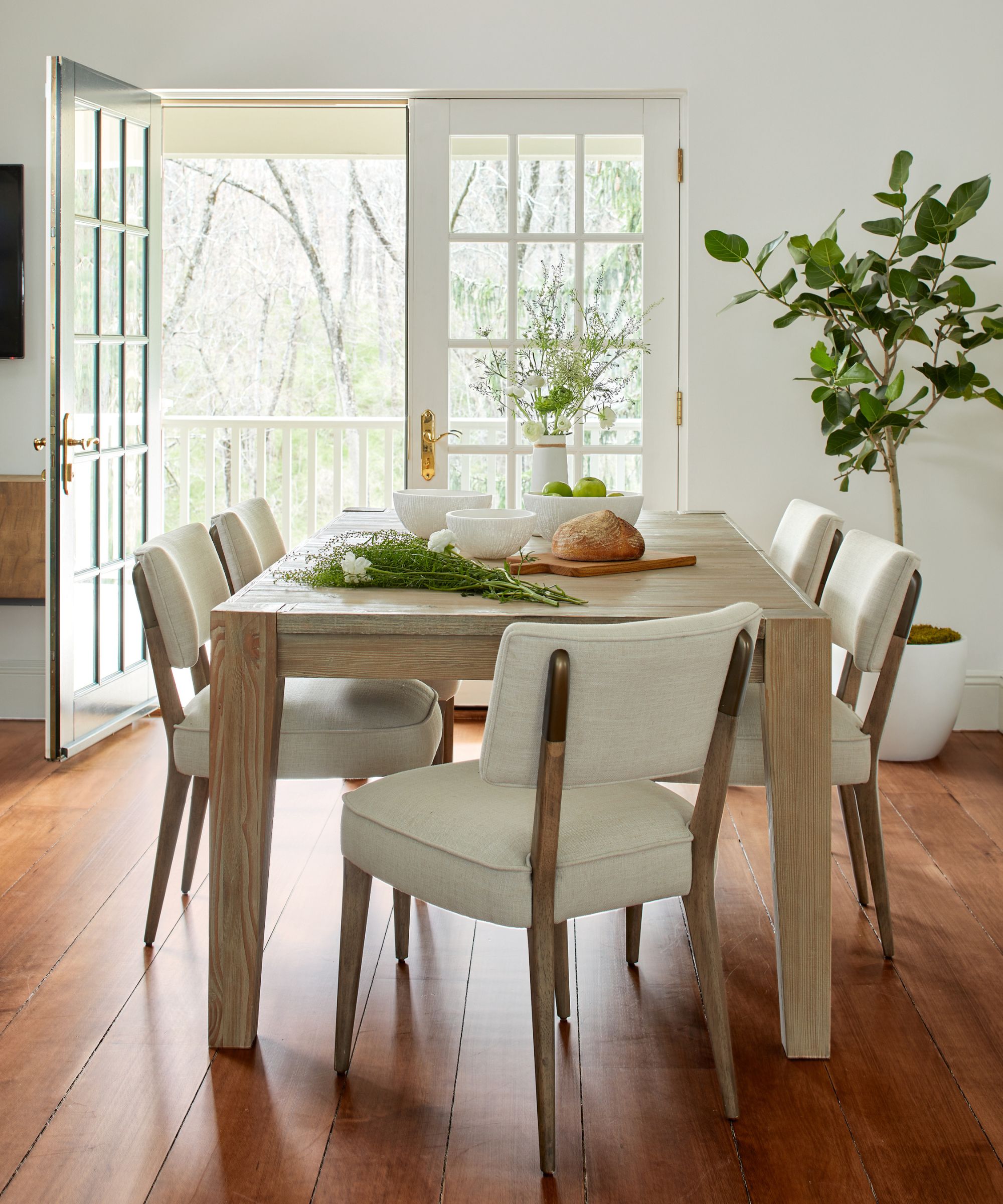
If you have a smaller corner of the kitchen you want to fill, something simpler and space-saving might be more fitting. While decor might be the desired choice, it's an awkward space for a lone item to be displayed. Instead, opt for a house plant or tree to add life and a dose of nature.
'Adding some greenery is always a nice way to add dimension and a pop of color to any room of your home, and the kitchen is no different. Add a potted plant to an unused corner to instantly brighten the space,' suggests Kathy Kuo, interior designer and CEO of Kathy Kuo Home.
'The best part is that plants can blend well with any design style, and these days, there are amazing faux plants and florals on the market that look 100 percent real but do not entail the maintenance of real plants,' she adds.
4. Add a bar cart display
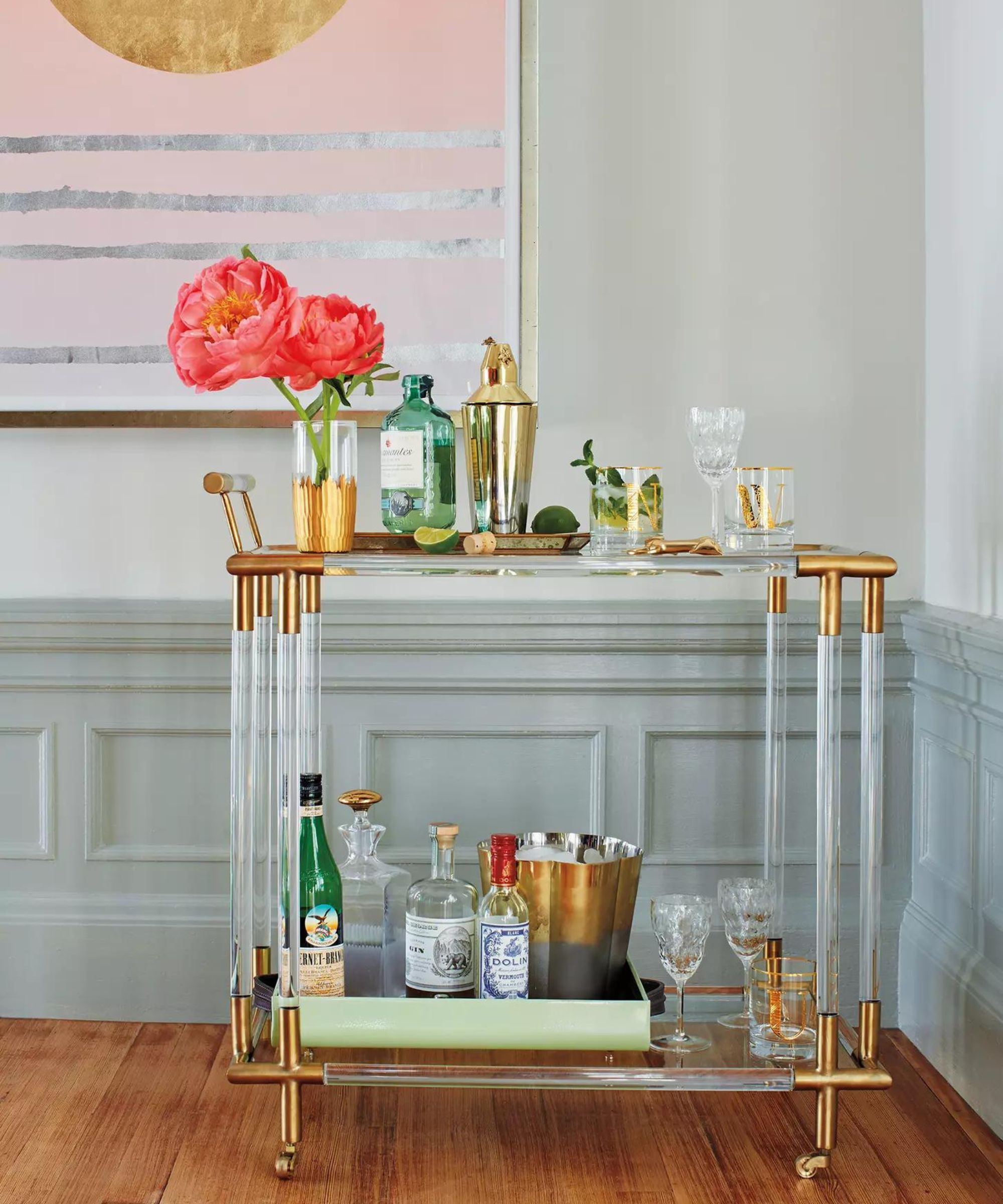
For a kitchen corner design that's purposeful and pretty, you really can't go wrong with a bar cart. Carefully curated with your favorite bottles and aesthetic glassware, you can transform an empty corner into a space you love using.
Think of a bar cart as a styling piece, rather than somewhere to stack all of your bar essentials and bottles. Choose a few of your favorite glasses – perhaps something with a decorative detail – and a few pretty bottles or decanters.
As bar carts are usually quite low to the ground, there will still be quite a lot of wall space left empty. To make the space feel cohesive and considered, add wall art or a playful sign to the wall above to make the corner feel complete.
We sourced the best bar carts in our dedicated feature.
5. Maximize a corner with a breakfast nook
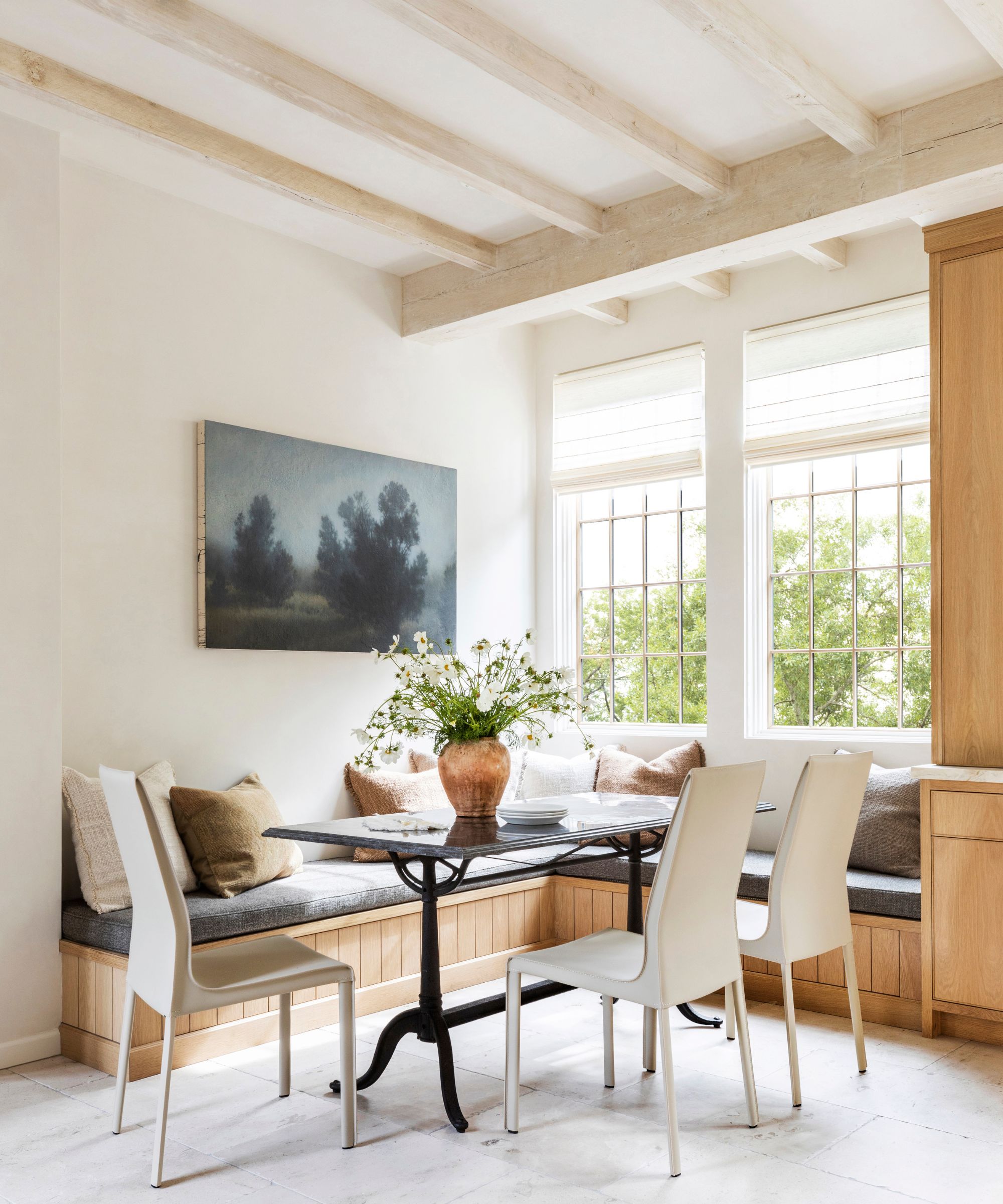
In most homes these days, the kitchen is usually also home to some sort of dining space, whether it's a formal table and chairs set-up or a more casual nook. An unused corner, assuming it's big enough, is the perfect place to introduce a cozy dining area.
'An empty kitchen corner presents a perfect opportunity to create a cozy banquette for a charming breakfast nook. By installing a custom-built banquette with plush cushions and integrated storage beneath, you not only maximize seating but also add a touch of casual elegance to the space,' says interior designer Marie Flanigan.
'Pair it with a round or rectangular table and complementing chairs to complete the inviting atmosphere, making it an ideal spot for enjoying morning meals or gathering with family and friends throughout the day,' she suggests.
Whether the empty corner of your kitchen is big or small, there are plenty of fun and interesting ways to give it a new lease of life. From a simple plant to a cozy seating area, there's an idea here for every style and space.







